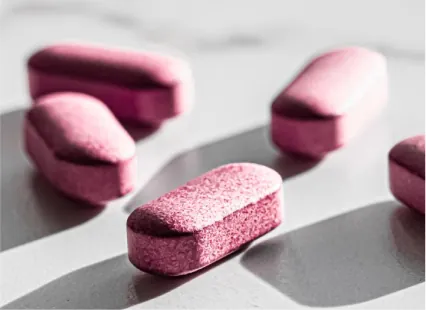Resuming life in Lake Worth after inpatient rehab presents a new chapter filled with both opportunities and challenges. Completing addiction treatment in Lake Worth is a big step toward recovery. However, the transition from the structured environment of inpatient care to the complexities of everyday life can be scary. This phase is critical as you reintegrate into your community, rebuild relationships, and take up daily responsibilities again. Understanding the challenges and support systems available in Lake Worth is essential when trying to recover and lead a fulfilling post-rehab life.
The Challenges of Adjusting To Life After Rehab
Completing rehab isn’t where the journey to recovery ends. Even though life in Lake Worth after inpatient rehab holds many possibilities, there are also some uncertainties. You’ve gotten used to the routine in the rehab facility, so now it makes sense that you would find it hard to create your own schedule. Plus, you have to work on your coping skills to manage triggers and avoid temptations that may surround you in everyday life. The added stress of rebuilding relationships that may have been strained during the process can make life after inpatient rehab even more difficult.
The contrast between the supportive, controlled environment of inpatient rehab Florida centers and the relative freedom of the outside world can be severe. There’s a need for continuous effort to apply the coping strategies learned in rehab to real-life situations. Addiction treatment centers play a crucial role in this adjustment period. Many centers offer outpatient programs and follow-up services, providing continued support and guidance.
When debating inpatient vs outpatient drug rehab, you must consider your unique situation. Outpatient services also include therapy sessions, group meetings, and check-ins that can help people stay on track with their recovery goals. However, one of the most important things when adjusting to life after rehab is a solid support system. This can include family, friends, support groups, and therapists who understand what you went through. Having people to turn to for encouragement and advice can make a significant difference in handling the pressures and temptations of everyday life.
Family and Friends as Pillars of Support
When building a healthy routine post-rehab, you’ll need to leave some time available to spend with friends and family. Keep the people you trust in the loop to ensure you recover long-term. Let them know how you’re honestly doing and reach out when you need to talk. You can even ask them to participate in family therapy sessions or educational programs that can help them understand the nature of addiction and the challenges of recovery.
Additionally, you’ll need to keep open and honest communication. Work on expressing your feelings and needs clearly and setting boundaries when needed. However, communication is not a one-way street. Ask your family and friends to try to share any concerns they might have in a non-judgmental way.
Moreover, it’s smart to establish regular check-ins or family meetings to discuss progress, setbacks, and ways to support each other. Participating in shared activities or hobbies can also strengthen these relationships, providing positive experiences outside the context of addiction and recovery.
Finding Employment After Rehab and Reintegrating Into Society
Finding stable employment is one of the most difficult parts of reintegrating into society post-rehab. After leaving inpatient rehab and having a structured routine, you’ll have to find a way to balance work with ongoing rehabilitation needs. This process can be demanding, but it’s manageable and rewarding with the right strategies. Initially, seeking work that doesn’t compromise your recovery is important.
This might mean finding a job with a supportive environment, reasonable hours, and minimal stress. You may even benefit from vocational training or job placement programs community organizations offer. To build a healthy work-life balance, manage your time effectively. Make sure you leave enough space for therapy sessions, support group meetings, and self-care activities. Prioritizing recovery activities is key, as neglecting these can jeopardize both work performance and sobriety.

As part of adjusting to life after rehab, focus some of your time on networking and building new professional relationships. Joining professional groups, attending workshops, and volunteering are great ways to meet new people and build a supportive social circle outside of the recovery community. These connections can be rewarding and, at the same time, lead to job opportunities.
One of the things you should keep in mind is the possibility of triggers and stress in the workplace. To deal with them effectively, it’s important to develop coping strategies. This could include taking regular breaks, practicing mindfulness or relaxation techniques, and having a plan to manage cravings or negative emotions. You can successfully navigate this transition by choosing supportive work environments, maintaining a recovery-focused routine, building professional networks, developing stress management strategies, and having a supportive network.
Building a Healthy Routine Post-Rehab and Focusing on Self-Care
The fundamental aspect of maintaining long-term recovery is maintaining a healthy post-rehab routine. This is one of the best ways to get the stability and structure you used to have while in inpatient rehab. To start, build a daily routine that is manageable and low-effort. Leave time for light exercise, work, and rest. During the week, find time to go to therapy and start meal-prepping on the weekends to save time.
Another important thing about this routine is that it should include consistent sleep patterns. Prioritizing these elements of a daily schedule reinforces a sense of normalcy and control, which is particularly comforting in the early stages of recovery.
Self-Care Practices for Life After Rehab
Each day, you should set aside enough time to incorporate self-care routines that will improve your mental health. This can involve activities like meditation, yoga, or mindfulness exercises, which help manage stress and maintain emotional balance. Engaging in hobbies or interests that bring joy and relaxation is also a form of self-care. Putting yourself first also means seeking regular medical check-ups and staying committed to therapy or counseling sessions. It’s implied that you must abstain from substance abuse while you actively work toward a healthier and more fulfilling life. Stay in touch with treatment drug centers and life coaches after inpatient rehab to make sure your routine is healthy and has the right self-care practices.

Rebuilding Relationships After Rehab
Before entering rehab, you may have strained or broken up certain relationships. For many, the idea of losing people due to their substance abuse can be devastating and lead to relapse.
However, some steps can help you deal with this effectively:
- Address the changes that have occurred during rehab.
- Have honest conversations with people you’d like to rebuild relationships with.
- Make clear boundaries with friends and family members.
- Apologize and forgive when needed without overstepping your boundaries.
- Ask for understanding and keep others informed about your mental health.
Rebuilding relationships after rehab takes time and patience, as addiction often damages trust between people. Demonstrating reliability, honesty, and commitment to recovery can gradually help restore it. It’s also important to work on forgiving yourself as well as others. In some cases, relationships may not be salvageable, or it may be healthier to let them go. To deal with these emotions in a healthy way, it’s best to talk about it with your therapist. Understanding and accepting this is just another part of the recovery journey.
Maintaining healthy relationships after rehabilitation also involves building new, positive relationships. This can mean connecting with others who are on a similar recovery path or engaging in community activities or groups that align with your interests and values.

Understanding and Managing Relapse Risks
After rehab, the risk of relapse is always a possibility, but it can be managed with the right strategies. To sustain long-term recovery from addiction, you need to recognize the signs of a potential relapse. They can vary but often include:
- Increased levels of stress.
- Changes in behavior or attitude.
- Neglecting self-care practices.
- Isolation from support networks.
- Skipping therapy sessions or meetings.
- Not keeping up with a daily routine.
- Romanticizing past substance abuse.
Being aware of these warning signs allows you and your support networks to take proactive steps to prevent a relapse. One effective approach is to identify specific triggers, which could be certain places, people, or emotional states, and develop a plan to avoid or cope with them. For instance, if stress is a major trigger, incorporating stress-reduction techniques like exercise, meditation, or deep breathing exercises into the daily routine can be beneficial.
Regularly attending support group meetings or therapy sessions provides a platform to share experiences and receive guidance. These networks also offer accountability, which can be a powerful motivator to stay sober. Developing healthy habits and hobbies is another important strategy we mustn’t forget to mention. As we stated, participating in joyful and fulfilling activities can also help redirect focus away from past addictive behaviors. These efforts can provide a sense of purpose and accomplishment, whether it’s sports, art, volunteering, or another interest.
Creating a relapse prevention plan is a critical step in the recovery journey. This plan outlines specific actions to take in the event of a relapse, such as contacting a therapist, attending an emergency support group meeting, or contacting a trusted friend or family member. It’s important to remember that experiencing a relapse is not a sign of failure but rather a temporary setback on the path to recovery.
The first phase of the rehabilitation process is detoxification, and finding a medical detox facility in Florida marks the beginning of this vital phase. Emphasizing that a relapse should be viewed not as a failure but as a minor detour emphasizes the importance of resilience and persistence in the recovery process.
Additionally, the plan should highlight the importance of continuous self-reflection and honesty. Regularly evaluating your feelings and behaviors and being transparent about them with yourself and others are crucial for early identification of potential issues. This approach fosters a proactive stance towards maintaining recovery and preventing relapse.

Adjusting to Life After Rehab With Ongoing Support and Resources
Long-term recovery is possible when you take advantage of ongoing support and resources. Our alumni program in Florida is one of the vital resources, offering continued connection and support from the treatment facility. Alumni programs often include regular check-ins, events, and opportunities for individuals in recovery to mentor those currently undergoing treatment. Participation in alumni programs can also provide a sense of belonging and a reminder of the progress made in recovery.
12-step groups, such as Alcoholics Anonymous (AA) or Narcotics Anonymous (NA), offer a structured approach to recovery based on a set of guiding principles. These groups provide a supportive community of people who share similar experiences and challenges. Regular meetings allow members to share their stories, offer mutual support, and work through the steps together. Level Up Treatment Lake Worth otherwise known as We Level Up Lake FL offers 12 step program for recovery that can improve your chances of long-term sobriety.
A sober house and a halfway house can be great resources of support from peers and staff. These living arrangements provide structured and substance-free settings while allowing you to start building your daily routine. But, what is a halfway house, and how is it different from a sober house?
Both halfway houses and sober houses ensure supportive environments for individuals recovering from addiction. The main distinction is that halfway houses require current or recent enrollment in a treatment program and typically have a limited stay duration. Above all, they include formal treatment services. On the other hand, sober houses are less restrictive and open to anyone committed to sobriety. They offer a more residential, potentially long-term living system with some rules like abstinence, participation in chores, and curfew adherence. Both types of residences help people maintain their recovery while gradually adjusting to life after inpatient rehab.

Focus on building a healthy life in Lake Worth after inpatient rehab
As you start your life in Lake Worth after inpatient rehab, know that things get easier with time. The daily challenge of avoiding triggers and temptations will slowly become less prominent. Once you secure employment, you will have a sense of routine and stability, almost like when you were in the rehab center. Build your daily routine and stick to it, even when getting up in the morning is difficult. Most importantly, take advantage of addiction treatment centers and life coaches to make sure you stay on track while reintegrating into society post-rehab.
Start a New Life
Begin with a free call to an addiction & behavioral health treatment advisor. Learn more about our dual-diagnosis programs. The We Level Up treatment center network delivers recovery programs that vary by each treatment facility. Call to learn more.
- Personalized Care
- Caring Accountable Staff
- World-class Amenities
- Licensed & Accredited
- Renowned w/ 100s 5-Star Reviews
We’ll Call You






